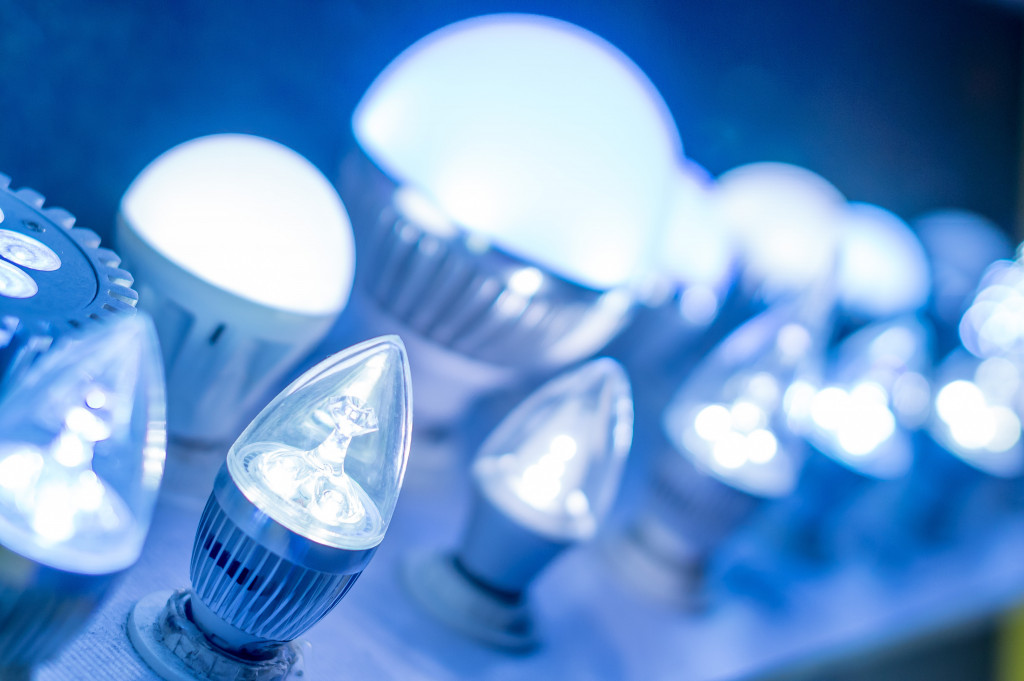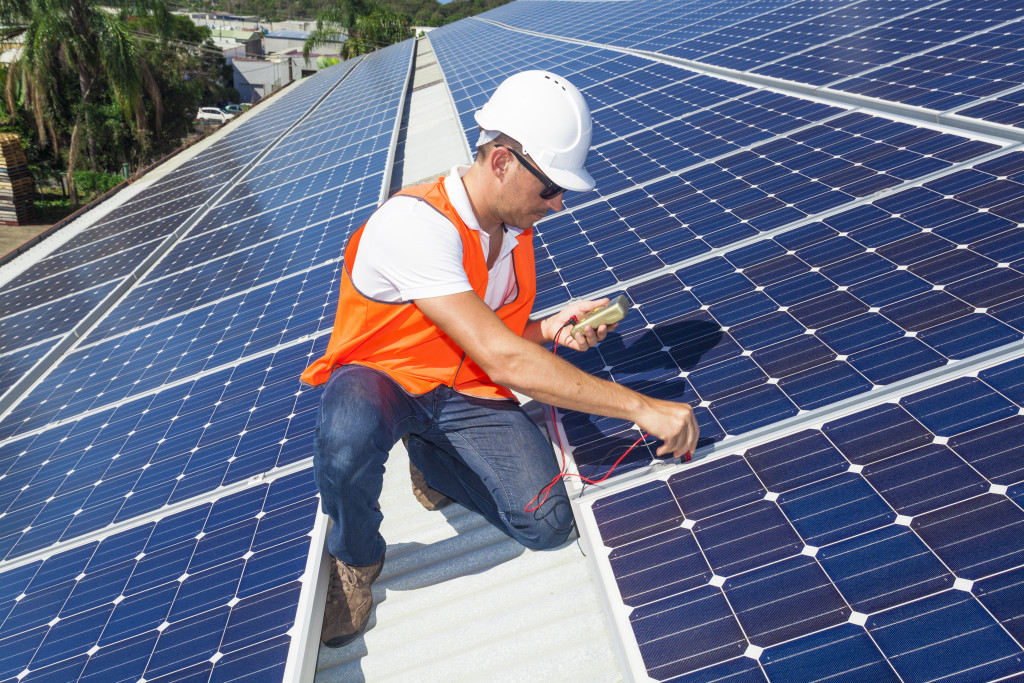- Energy efficiency in businesses can be achieved by conducting an energy audit, and identifying areas of waste and improvement.
- Upgrading energy-efficient equipment and lighting can significantly reduce energy costs and increase operational efficiency.
- Solar panels provide a sustainable and cost-effective energy solution, significantly reducing reliance on fossil fuels.
- Programmable thermostats allow for improved energy management through schedule-based temperature adjustments.
- Building insulation can reduce energy consumption for heating and cooling, contributing to lower utility bills and a comfortable working environment.
As a business owner, you always look for ways to streamline operations and cut costs. One of the most impactful yet often overlooked strategies is implementing energy-efficient practices in your establishment. It not only helps in reducing expenditure but also contributes to a more sustainable future. Making energy efficiency a priority can pave the way for a healthier bottom line and an enhanced reputation among eco-conscious customers.
Conduct an Energy Audit
The initial step towards energy efficiency is conducting an energy audit. This entails thoroughly assessing your establishment’s energy use and pinpointing areas where energy is wasted and efficiency can be improved. An energy audit can be as simple as tracking your energy bills to identify unusual spikes, or as detailed as hiring a professional auditor to conduct an in-depth analysis.
This process will help identify sources of energy waste such as outdated appliances, poorly insulated buildings, or inefficient lighting systems. Addressing these issues can significantly reduce your energy consumption and utility bills. Furthermore, an energy audit sets the foundation for creating a comprehensive energy management plan, setting your business to sustainability and cost-efficiency.
Implement a Company-Wide Energy Conservation Policy
As a crucial next step, implementing a company-wide energy conservation policy can serve to standardize energy-efficient practices among all members of your organization. Here are some tips:
Upgrade to Energy-Efficient Equipment
Regarding large energy consumers in your business, your equipment might be a top contender. Upgrading to energy-efficient equipment can dramatically reduce your energy expenditure. Consider investing in ENERGY STAR-certified appliances that consume less energy without compromising functionality.
This could mean replacing old computers, refrigeration units, heating and cooling systems, or light bulbs with energy-efficient models. While the initial cost may appear substantial, the long-term savings on energy bills and potential tax benefits can compensate for this initial investment.
Additionally, energy-efficient equipment often comes with the added benefit of increasing overall operational efficiency, thus contributing to higher productivity. Upgrading your equipment is a step towards energy efficiency and a more profitable and sustainable business.
Switch to Energy-Efficient Lighting

Lighting can account for a significant portion of your business’s energy use, making it a prime candidate for energy-efficient practices. By switching to energy-efficient lighting such as LED or compact fluorescent bulbs, you can reduce your energy consumption and extend the lifespan of your lighting fixtures.
LEDs, for instance, use up to 80% less energy and last 25 times longer than traditional incandescent bulbs. Additionally, implementing a policy of turning off lights in unoccupied spaces, or investing in motion sensor lighting, can further contribute to energy savings. Remember, even small changes can significantly affect energy consumption and cost savings. Start examining your lighting practices today to uncover potential opportunities for improvement and start reaping the benefits of energy efficiency.
Opt for Solar Panels

One of the most effective ways to significantly reduce your business’s reliance on fossil fuels and curtail energy costs is by opting for solar panels. By harnessing the sun’s power, solar energy presents a sustainable and cost-effective solution to your energy needs. The initial investment in a solar power system can provide considerable returns through a significant decrease in electricity bills.
More importantly, it makes a strong statement about your company’s commitment to sustainability, resonating with customers who prioritize environmentally friendly practices. Hiring PSC Electrical’s solar panel installation services ensures a seamless and hassle-free transition to this renewable energy source. As industry leaders, their experienced specialists provide top-notch installations tailored to your requirements and goals.
Invest in Programmable Thermostats
Investing in programmable thermostats is another effective strategy for better energy management. These devices allow for automatic adjustments of heating and cooling temperatures in your business premises according to a pre-set schedule, eliminating unnecessary energy use during off-hours.
For instance, you can program the thermostat to lower the heating or cooling when the premises are not in use, and have it return to comfort levels just before employees arrive. This improves energy efficiency and enhances the comfort of your workspace.
Moreover, some advanced models offer smart features like energy usage reports and remote control via mobile apps, offering more convenience and control over your energy consumption. Even a few degrees of adjustment can lead to substantial savings over time, making programmable thermostats an investment that pays for itself while contributing to a greener planet.
Improve Building Insulation
Improving your building’s insulation is a critical component of energy efficiency. Insufficient insulation can lead to significant heat loss during colder months and excessive heat gain during warmer months, resulting in high energy use for heating and cooling systems. By investing in quality insulation, you can maintain a comfortable indoor temperature more efficiently, reducing the need for artificial heating or cooling.
This means less energy consumption and lower utility bills. Moreover, effective insulation can also reduce noise levels inside the building, contributing to a more comfortable working environment. Consider professional insulation services for a thorough assessment and appropriate solutions tailored to your building’s needs. Remember, a well-insulated building is energy-efficient, cost-effective, and environmentally friendly.
Embrace energy efficiency today to secure your business’s profitable and sustainable future. Start by conducting an energy audit, update equipment, and improve your building’s insulation. Remember, every step towards energy efficiency is towards cost-effectiveness and environmental stewardship. Act now, and begin your journey towards a green, more sustainable business!
